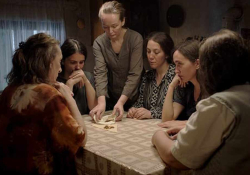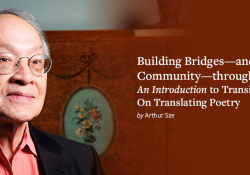Carrying a People Across a Watery Divide: Translating Cuba in the Twenty-First Century
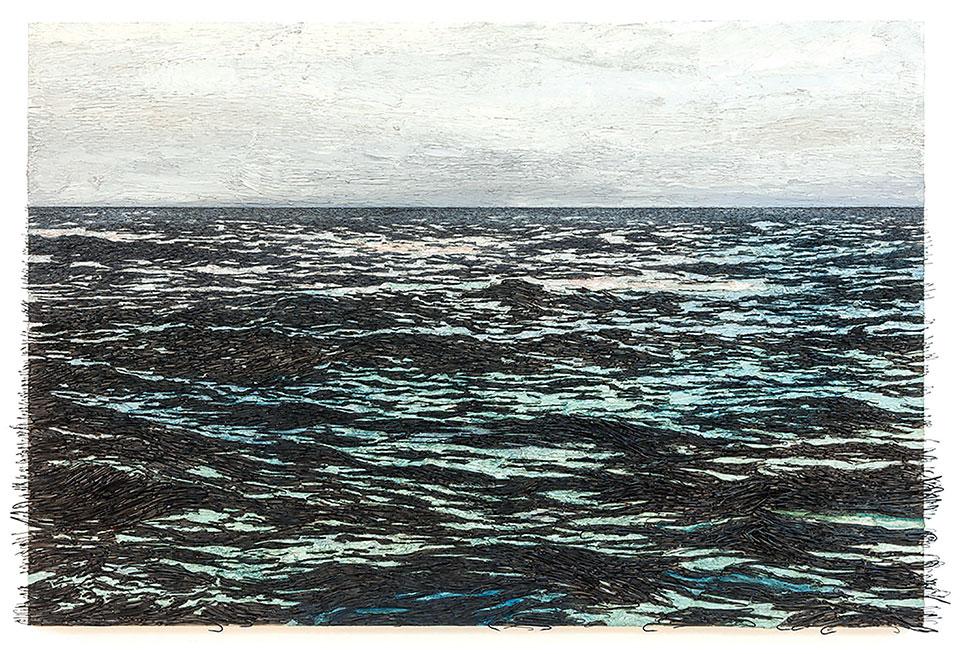
Through conversations with several translators, Vanessa Garcia explores the intentions and challenges of those working through a coded world of censorship to bring Cuba to light.
If we look at the etymology of the word translation, it comes from translatus, which means to carry across, to bring over. Literary translations carry us across language, people, and cultures. But the brave and swift-tongued who are translating Cuba right now are carrying a heavier load still. They are carrying an island across a slippery border, swimming in misperception. They are working through a coded world of censorship and trying to bring an island to light. An island that has, for so long, lived in darkness.
The brave and swift-tongued who are translating Cuba right now are carrying an island across a slippery border, swimming in misperception.
Among these translators are Achy Obejas, Alexis Romay, Eduardo Aparicio, Kristin Dykstra, Dick Cluster, and Anna Kushner, among others. Without these decoders, the voice of an island would be lost in the battle between surface and reality. The English-speaking world would not have access to greats like Heberto Padilla, Leonardo Padura, and sharp new voices like Wendy Guerra, Rita Indiana (Dominican), or Marcial Gala.
Without these decoders, the voice of an island would be lost in the battle between surface and reality.
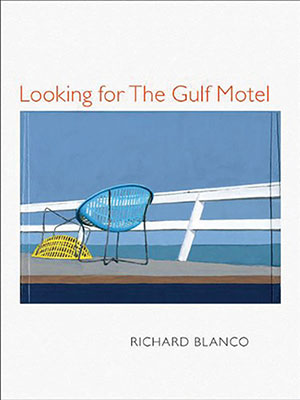 “But the power of literature is irrepressible,” says Eduardo Aparicio, president of Aparicio Publishing, and most recently the English-Spanish translator of Richard Blanco’s Looking for the Gulf Motel. “There’s a reason why tyrants ban books and authors. Literature is powerful, mind-changing, life-changing, world-changing,” he continues.
“But the power of literature is irrepressible,” says Eduardo Aparicio, president of Aparicio Publishing, and most recently the English-Spanish translator of Richard Blanco’s Looking for the Gulf Motel. “There’s a reason why tyrants ban books and authors. Literature is powerful, mind-changing, life-changing, world-changing,” he continues.
Aparicio goes against the usual current of Cuban translation, which moves from Spanish to English. He translates, instead, into Spanish—books from exiled Cuban writers or Cuban American writers like Blanco who live outside the island and write in English. Others Aparicio has translated include Achy Obejas, Nena Torres, and Rosa Lowinger.
His job, he says, is to make sure these works are part of the Cuban literary canon. The Cuban people are, after all, spread across continents, in a diaspora where two million Cubans call the United States home. Three hundred thousand reside in other countries like Spain, France, Mexico, Italy, Canada, Puerto Rico, Venezuela, and other Latin American and Caribbean countries.
When you ask Aparicio where he is from, he quotes the legend Celia Cruz, in Spanish: “No me pidan definición, caballero. Es que yo pertenezco al mundo” (Don’t ask me to define myself, folks. I belong to the world).
But, in fact, Aparicio is from Guanabacoa, just outside of Havana on the other side of the bay, birthplace of the Cuban composer Ernesto Lecuona and the renowned singer Rita Montaner. He was raised in Centro Habana, where his mother was a school principal and his father a university professor who later became a political prisoner from 1966 to 1972. At the age of twelve, Aparicio left Cuba, but Cuba did not leave him. “I live in Cuba. I’ve always lived in Cuba,” he says, quoting the poet Heberto Padilla, whom he translated into English at the age of nineteen.
“Translating Padilla when I was nineteen was particularly emotional,” said Aparicio, “given the injustices against him by the Cuban government and the fact that my own father was a political prisoner at the time, suffering similar injustices.” In the late 1960s and ’70s, Padilla spoke out against the oppressive Castro regime and for this was punished, jailed, and surveilled. He died at sixty-eight, an exile, in Auburn, Alabama. The “Padilla Affair” changed the way some outsiders viewed Cuba. International writers like Susan Sontag and Jean-Paul Sartre rose up in protest. The ordeal was, according to the New York Times, “the event that forever changed the way they [authors like Susan Sontag and Sartre] viewed Castro’s Cuba.”
On the surface, things have changed. A Cuban author like Leonardo Padura is seemingly everywhere. He is a national hero in Cuba, a celebrity. One of the writers that has, somehow, seemingly escaped the censorship of the regime. There’s even an HBO show based on his work called Four Seasons in Havana. The show takes on his central protagonist, a hard-boiled Cuban detective named Conde.
Many have said that perhaps the safety of Padura’s pen lies in the fact that he’s never blatantly anti-Castro and his social critiques are veiled beneath the smoke of his characters’ cigars. For many translators of Cuba, this sentence is, in and of itself, frustrating because it points to the inescapable political element of translating an island that has lived under a dictatorship for so long. Padura’s translator, Anna Kushner, points to the fact that when Padura leaves Cuba he does not have the luxury to talk about “process” like many other writers. He is immediately asked about politics instead.
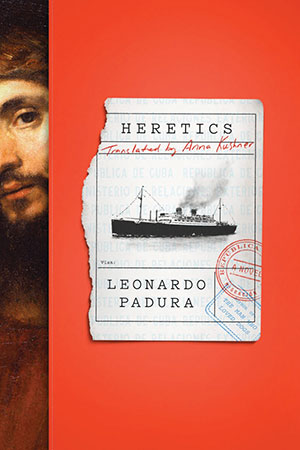 The paradox of Padura is, of course, that—while there are smoke and mirrors—the diction, the language itself, is precise, painterly, both poetic and quotidian in the way Cuban Spanish is. “He’s really descriptive,” says Kushner. “I can’t think of many instances where I can’t picture [Padura’s writing].” Kushner herself is as precise. When she was translating Padura’s The Man Who Loved Dogs (2014), a novel about the assassination of Leon Trotsky by Ramón Mercader in Mexico City in 1940, Kushner lived in Paris, where a large part of the book’s action takes place. There was a moment when Padura included a long mirror at the Ritz, and Kushner went to see it, to get it right. Later, when she translated Padura’s Heretics (2017), which partially takes place in artist studios, she consulted two art historian friends and an artist (see WLT, Sept. 2017, 76). “I would pick their brains about superspecific paint compounds,” says Kushner. She then reminds us that Padura lives in Cuba, where the world doesn’t sit at his fingertips; he has to seek it out. “He does a lot of meticulous research,” says Kushner, “and uses materials from a wide array of resources. He’ll ask friends in Amsterdam for sources; he’s not just sitting there googling.”
The paradox of Padura is, of course, that—while there are smoke and mirrors—the diction, the language itself, is precise, painterly, both poetic and quotidian in the way Cuban Spanish is. “He’s really descriptive,” says Kushner. “I can’t think of many instances where I can’t picture [Padura’s writing].” Kushner herself is as precise. When she was translating Padura’s The Man Who Loved Dogs (2014), a novel about the assassination of Leon Trotsky by Ramón Mercader in Mexico City in 1940, Kushner lived in Paris, where a large part of the book’s action takes place. There was a moment when Padura included a long mirror at the Ritz, and Kushner went to see it, to get it right. Later, when she translated Padura’s Heretics (2017), which partially takes place in artist studios, she consulted two art historian friends and an artist (see WLT, Sept. 2017, 76). “I would pick their brains about superspecific paint compounds,” says Kushner. She then reminds us that Padura lives in Cuba, where the world doesn’t sit at his fingertips; he has to seek it out. “He does a lot of meticulous research,” says Kushner, “and uses materials from a wide array of resources. He’ll ask friends in Amsterdam for sources; he’s not just sitting there googling.”
Kushner has translated other writers like Guillermo Rosales, Norberto Fuentes, and Gonçalo Tavares as well as Padura, and she’s come to the exasperating realization that the greatest challenge in translating Cuba is crashing up against Cuba’s surface and pushing beyond what people know, to the messier realities of the island. Pushing also beyond the preconceived notions of American publishers. “I’m trying so hard,” she says, “not to fetishize the American imagination of what Cuba is and should be. As a translator, it’s a critical function to understand what’s going on in Cuba today, instead of feeding the idea of what it should be.”
She’s, in essence, up against how to sell the true Cuba to Americans “when there’s not something in existence that is similar, just [the fetishized version of Cuba].” Dick Cluster, who translates writers like Aida Bahr, adds that he also “wanted to complicate Americans’ views of Cuba, whether right, left, or center, and translating contemporary Cuban literature is a good way to do that.”
Dick Cluster also “wanted to complicate Americans’ views of Cuba, whether right, left, or center, and translating contemporary Cuban literature is a good way to do that.”
Enter the book Kushner is currently working on, The Black Cathedral, by Marcial Gala, set for publication by FSG in 2020. “This is definitely not something you see in the American press,” Kushner says. First, it doesn’t take place in Havana; it takes place in a marginal neighborhood in Cienfuegos. It does not have any stereotypical Cuban characters, and it’s about a man who receives a mission from God to build a temple like none Cuba has seen. “I’m really a little nervous and excited at the same time,” says Kushner.
In addition, it’s a character-driven book, which is probably what Kushner is most drawn to and what makes it, no matter what, universal. As a reader and translator, Kushner is interested in what she calls the human novel. “Making sense of our different human emotions, whether that be political or the death of someone close to you or a radical life change, whatever that might be. . . . Getting into someone else’s head and another point of view for two hundred pages—there’s so much to learn from that,” she says.
Kushner, like Aparicio, is Cuban (of Cuban descent in her case), so she knows innately the complex points of view Cuba encompasses—they’ve been passed on throughout the years, from one family member to the next. But you don’t have to be Cuban to understand that Cuba is intricate. Kristin Dykstra, who has been translating Cuban literature for over a decade and a half, comes at Cuba from the outside but with an extremely keen eye, and she arrives at a similar conclusion to Kushner’s: Cuba is “messy, pushed around by a slew of Cuban voices and those of a couple of translators too,” says Dykstra.
Born in Ohio, Dykstra grew up on a farm road where there were only two “English families”; the rest were Amish. “In retrospect, I realize that I grew up in a place with a constant perception gap.” The ability to navigate this gap has helped her navigate Cuba. Later, in graduate school, a professor introduced her to the poetry of Reina María Rodríguez, whom Dykstra would eventually come to translate. The two have been working together ever since the late 1990s, and you can see the closeness, at least to the language, in Dykstra’s nuanced yet utterly faithful rhythms. They are a song to read.
“I enter Reina’s work,” says Dykstra, “as something that’s newly presenting itself to me. For Reina, it’s already receding in her wake. We sort of shout back and forth across that distance. It’s challenging, but for me, the process becomes fun because it’s so weird. Reina is a restless, prolific thinker and creator with her own rhythm.”
Dykstra is herself prolific, too. When she’s not translating Rodríguez, she is working on other Cuban writers, consistently visiting the island as well as other places the world takes Cubans. “I once met a Cuban poet in Madrid to finish a magazine publication,” she says. For her, it’s a matter of ethics, to actually visit the island, the places Cuban writers feel through and see; live. “I learn unexpected things, and while I can do some of that work on email, being there in person is irreplaceable. You just can’t plan for someone pointing to the exact angle from which they view a business across the street, or searching through a box of crumpled old photographs, or introducing you to the dog who will turn up years later in some cryptic text.”
For Kristin Dykstra, it’s a matter of ethics, to actually visit the island, the places Cuban writers feel through and see, live.
Another writer Dykstra has translated is Juan Carlos Flores, a very particular kind of writer who never joined the uneac, the government-run Cuban writer and artist union. Flores, as Dykstra explains, “was known for sometimes caustic resistance to all manners of institutionality (a trait that could translate past Cuba).” Of Flores, she translated The Counterpunch (and Other Horizontal Poems). He wasn’t exactly well known in Cuba and was one of the writers Cuba might have erased if it weren’t for the power of translation.
In fact, the book Dykstra translated might not have been published by the state presses at all in Cuba if Reina María Rodríguez hadn’t done it herself first, using her own very small press, Torre de Letras. “Upon his death, Juan Carlos was not granted special funerary recognition for his contributions to literature, despite a request from his friends,” says Dykstra. He would definitely not be known outside the island if it weren’t for Rodríguez and for Dykstra herself.
“Overall, there has been nothing as dramatic as the Padilla case or the more recent activity around [the artist] Tania Bruguera,” says Dykstra, “yet everything I’ve translated has some degree of critical speech in it. . . . One can’t always guess when a writer will be perceived as crossing a line between acceptable and unacceptable criticism.”
At least if some of these writers can’t be read in Cuba, there is hope in what Cubans everywhere call el exterior—in that diaspora which boomerangs right back to the island, sometimes missing, but sometimes making a full return, despite obstacles. When words sit free on a page, there is always hope that, as Kushner says, entering another person’s point of view will teach us something. Cumulatively it tells us the Cuban story, and, broader still, it helps us piece together our collective human thread.
Miami


